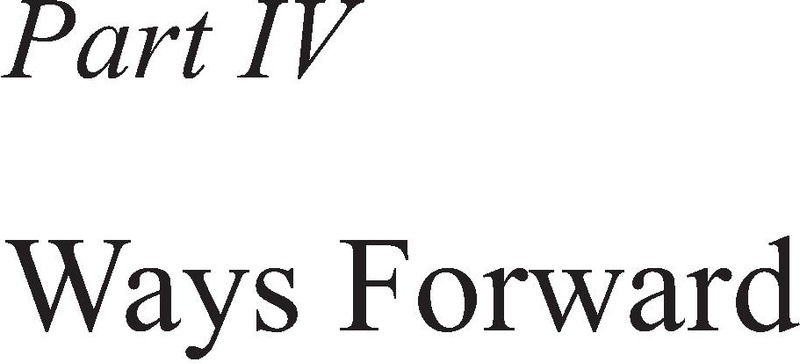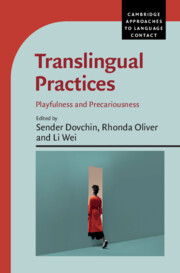Book contents
- Translingual Practices
- Cambridge Approaches to Language Contact
- Translingual Practices
- Copyright page
- Contents
- Figures
- Tables
- Contributors
- Foreword
- Acknowledgements
- 1 Introduction
- Part I Beyond Translingual Playfulness
- Part II Online Activism
- Part III Critical Pedagogy
- Part IV Ways Forward
- Index
- References
Part IV - Ways Forward
Published online by Cambridge University Press: 07 May 2024
- Translingual Practices
- Cambridge Approaches to Language Contact
- Translingual Practices
- Copyright page
- Contents
- Figures
- Tables
- Contributors
- Foreword
- Acknowledgements
- 1 Introduction
- Part I Beyond Translingual Playfulness
- Part II Online Activism
- Part III Critical Pedagogy
- Part IV Ways Forward
- Index
- References
Summary

- Type
- Chapter
- Information
- Translingual PracticesPlayfulness and Precariousness, pp. 219 - 246Publisher: Cambridge University PressPrint publication year: 2024

